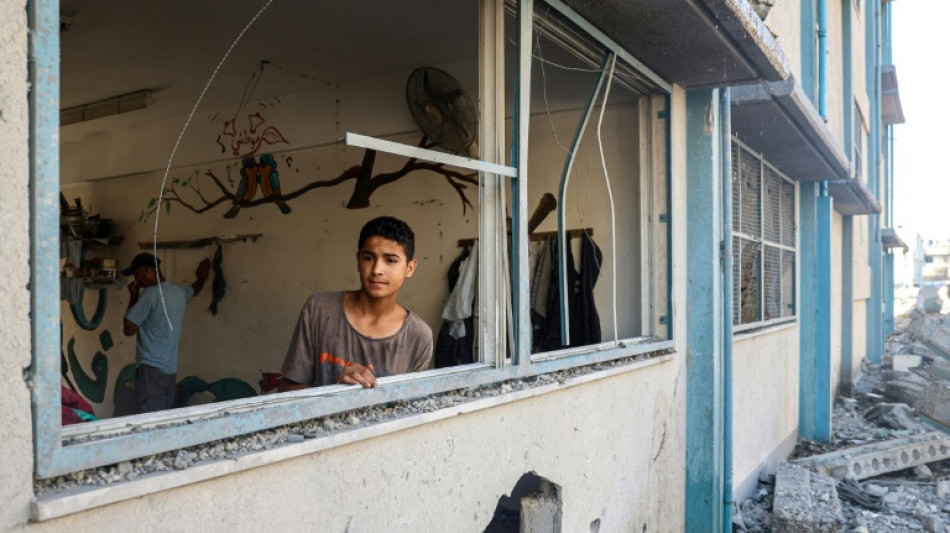Teenagers across the Gaza Strip should have been taking their final exams this month, a last hurdle before university and lifelong dreams, but the war in the Palestinian territory has crushed those hopes.
According to the education ministry in the Hamas-run Gaza Strip, 85 percent of educational facilities in the territory are out of service because of the war.
"I was eagerly awaiting the exams, but the war prevented that and destroyed that joy", said Baraa al-Farra, an 18-year-old student displaced from Khan Yunis in southern Gaza.
"At first we were waiting in the hope that the war would end and we would catch up," he said.
But "we don't know how long it will last or how many years it will deprive us of our educational lives."
Almost nine months of war in Gaza began with an unprecedented October 7 attack on southern Israel by the Islamist militant group Hamas. The attack resulted in the deaths of 1,194 people, mostly civilians, according to an AFP tally based on Israeli official figures.
Israel's retaliatory offensive has killed at least 37,598 people, also mostly civilians, according to the health ministry in Hamas-run Gaza.
The Education Cluster, a UN-backed organisation, estimated in a report this month that more than 75 percent of Gaza's schools would need full reconstruction or major rehabilitation to reopen.
Many have been turned into shelters for Gaza's displaced and others have been damaged in bombardment.
- 'Books not bombs' -
Liliane Nihad, an 18-year-old displaced to Khan Yunis from Gaza City, in the territory's north, said she and her fellow students had "been waiting 12 years to take these exams and pass and feel happy and enter university... but we have been deprived of all that by this damned war".
Nihad said she had been hoping to study English and to get a doctorate, "but all of that has evaporated".
Displaying their anger at the situation, dozens of students and teachers held a protest in Gaza City's Al-Rimal neighbourhood on Saturday.
"We demand our right to take high school exams" and "We want books, not bombs" they chanted, while empty chairs were laid out to symbolise those students killed in the war.
Mediation has failed to bring an end to the fighting, leaving Gaza's young people with deep uncertainty about their futures.
Farra said he wanted to get out of the territory to achieve his dreams.
"I hope that the crossing will be opened so that I can travel in order to complete my education and not waste my years because I am young and want to achieve my ambitions."
For now, he faces the harsh realities of life under siege.
"I wish I could experience the fatigue of staying up late studying now and not the fatigue of queueing for sweet and salty water" in the territory where clean water is scarce, like many other essentials.
- 'Psychologically exhausted' -
Pupils in the Israeli-occupied West Bank will take the exams, as will those Gazans who managed to escape to neighbouring Egypt.
Even for these pupils, however, the war has been hugely disruptive.
"We are psychologically exhausted and not well prepared" said Muhammad Osama, a student from Gaza's southernmost city of Rafah, after completing his religious studies exam in Cairo.
In the West Bank, violence has further escalated since the start of the Gaza war. According to the Palestinian official news agency Wafa, 20 high school students are among the hundreds of Palestinians killed there.
Wafa reported that 89,000 students from Gaza and the West Bank had been expected to take high school exams this year.
Back in Gaza, however, there will be no exams at all.
The UN, citing the Palestinian ministry of education, said about 39,000 high school students in Gaza are unable to take their tests.
Sulaf Mousa, an 18-year-old from Al-Shati Camp west of Gaza City, hit by a deadly air strike on Saturday, said he had hoped to study medicine and become a doctor.
"Now, we hope we will survive the war and not lose more than we have already lost," Mousa said.
R.Khurana--BD
